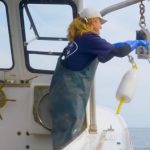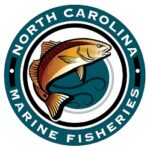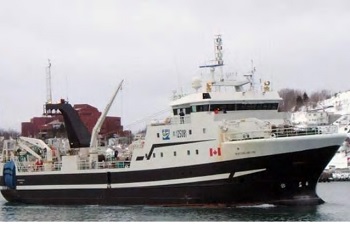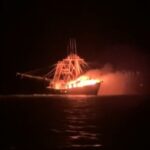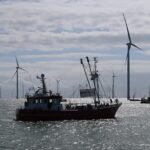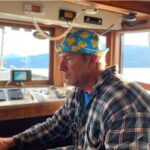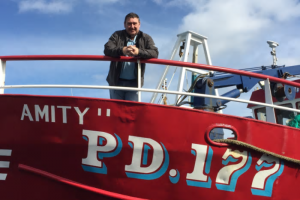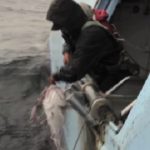Monthly Archives: March 2013
U.S. Senator Maria Cantwell Urges SEC Investigation of Contradictory Statements by Pebble Mine Company
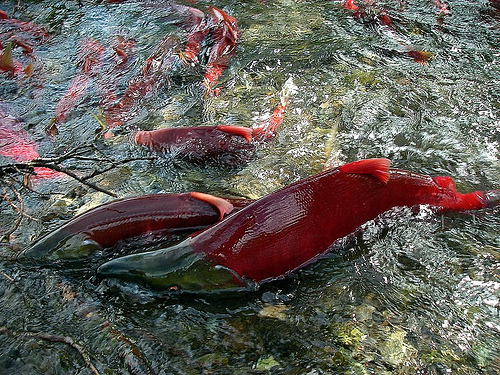 Today, U.S. Senator Maria Cantwell (D-WA) urged the Securities and Exchange Commission (SEC) to investigate contradictory information provided by Northern Dynasty Minerals to federal officials regarding the Canadian company’s proposal to build the world’s largest hard rock mine in Alaska’s Bristol Bay watershed. continue
Today, U.S. Senator Maria Cantwell (D-WA) urged the Securities and Exchange Commission (SEC) to investigate contradictory information provided by Northern Dynasty Minerals to federal officials regarding the Canadian company’s proposal to build the world’s largest hard rock mine in Alaska’s Bristol Bay watershed. continue
U.S. Secretary of State John Kerry Urges Creation of Vast Marine Reserve in Antarctica
![]() U.S. Secretary of State John Kerry called for establishing the world’s largest protected marine area in Antarctica and urged stronger global safeguards for oceans. continue
U.S. Secretary of State John Kerry called for establishing the world’s largest protected marine area in Antarctica and urged stronger global safeguards for oceans. continue
Strong start expected for Maine eel fishing
 PORTLAND – Last year’s eel fishing season started strongly when prices topped $2,000 a pound. High prices are expected again when the 2013 season starts Friday. There were reports of fishermen making $10,000 to $20,000 a day last year.continue
PORTLAND – Last year’s eel fishing season started strongly when prices topped $2,000 a pound. High prices are expected again when the 2013 season starts Friday. There were reports of fishermen making $10,000 to $20,000 a day last year.continue
Porbeagle shark swims onto endangered list
![]() Canada has only one shark to call its own, and this week the species was listed for the first time as endangered under an international convention. continue
Canada has only one shark to call its own, and this week the species was listed for the first time as endangered under an international convention. continue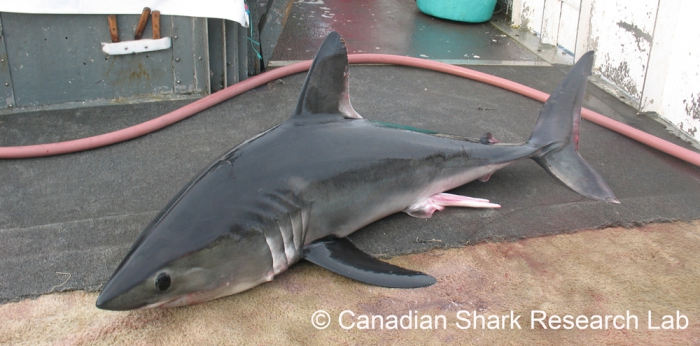
Maine Department of Marine Resources to tinker with proposed lobster marketing fees
![]() AUGUSTA, Maine — A legislative committee on Monday tabled discussion on a bill that would raise $3 million in lobster industry licensing fees so that state regulators could have time to tinker with the proposed fee schedule. continue
AUGUSTA, Maine — A legislative committee on Monday tabled discussion on a bill that would raise $3 million in lobster industry licensing fees so that state regulators could have time to tinker with the proposed fee schedule. continue
Miracle at sea: Nova Scotia Fishermen escape death from rogue wave
 THE HAND of God delivered two Nova Scotia fishermen from the deep earlier this month, says a Woods Harbour skipper. Sandy Stoddard, captain of the Logan & Morgan, spoke Monday about a miracle at sea two weeks ago, when two young men who were tossed overboard after a violent rogue wave slammed into their boat were returned from almost certain death. continue
THE HAND of God delivered two Nova Scotia fishermen from the deep earlier this month, says a Woods Harbour skipper. Sandy Stoddard, captain of the Logan & Morgan, spoke Monday about a miracle at sea two weeks ago, when two young men who were tossed overboard after a violent rogue wave slammed into their boat were returned from almost certain death. continue
Letter to the editor: Standing up for fishermen and our heritage
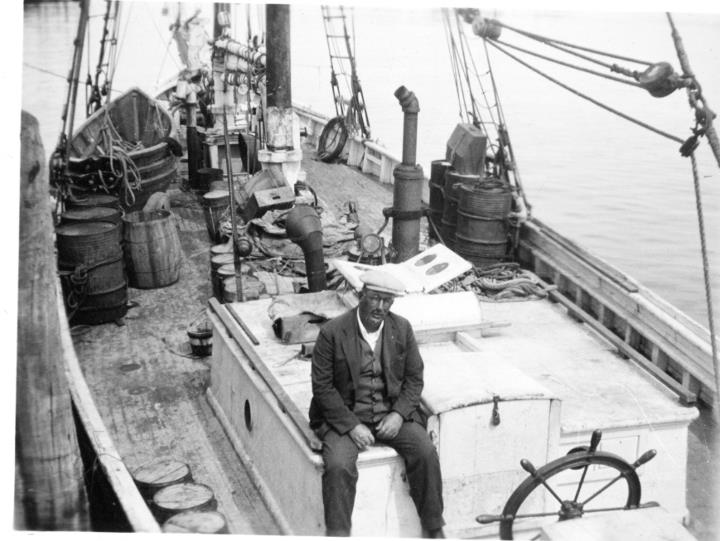 Some salty sailors out of Gloucester faced an unsavory fate Whose fraternal hearty shipmates lost at sea numbered 5,368. From 1866-1890 2,450 fishermen and 380 schooners were lost Italian, Canadian, West Indian and Portuguese souls ships were tempest-tossed. continue, and thank you Stu.
Some salty sailors out of Gloucester faced an unsavory fate Whose fraternal hearty shipmates lost at sea numbered 5,368. From 1866-1890 2,450 fishermen and 380 schooners were lost Italian, Canadian, West Indian and Portuguese souls ships were tempest-tossed. continue, and thank you Stu.
Freeing sales of lobster tails – State bill would open door to local sales
![]() Massachusetts’ boats in 2011 landed nearly 14 million pounds of lobster. While that’s a fraction of the 105 million pounds landed by boats in Maine, which used to use them as an illustration on automobile licence plates, Massachusetts’ second place in state lobster landings is secure. So, why is it that national restaurant chains that offer American lobster tail dinners in their Massachusetts restaurants import spiny lobster tails sourced and imported from exotic locales such as the Gulf of Mexico, South Africa and Australia? continue
Massachusetts’ boats in 2011 landed nearly 14 million pounds of lobster. While that’s a fraction of the 105 million pounds landed by boats in Maine, which used to use them as an illustration on automobile licence plates, Massachusetts’ second place in state lobster landings is secure. So, why is it that national restaurant chains that offer American lobster tail dinners in their Massachusetts restaurants import spiny lobster tails sourced and imported from exotic locales such as the Gulf of Mexico, South Africa and Australia? continue
Alright. This 2048 crap is out of control! You gotta read this. (shaking head) – Want to Save Starving Sea Lion Pups? Here’s How
![]() Want to Save Starving Sea Lion Pups? Here’s How– Megan Pincus Kajitani. Tears streamed down my 7-year-old daughter’s face this cloudy, March morning, as we watched the plight of a lone female California sea lion pup, clearly exhausted, struggling to keep her head above water and get herself to our local beach’s jetty. blah blah blah, tears running down my face, and then, Many marine scientists believe that, at the rate we’re going, the seas will be barren by 2048. (Did you get that? No sea life in 35 years!) Read this ! See this article – No fish Left in the Ocean by 2048!!! – Media hype gets you more citations? Well, it did for this fisheries paper. By Dr Bik
Want to Save Starving Sea Lion Pups? Here’s How– Megan Pincus Kajitani. Tears streamed down my 7-year-old daughter’s face this cloudy, March morning, as we watched the plight of a lone female California sea lion pup, clearly exhausted, struggling to keep her head above water and get herself to our local beach’s jetty. blah blah blah, tears running down my face, and then, Many marine scientists believe that, at the rate we’re going, the seas will be barren by 2048. (Did you get that? No sea life in 35 years!) Read this ! See this article – No fish Left in the Ocean by 2048!!! – Media hype gets you more citations? Well, it did for this fisheries paper. By Dr Bik
Fraser sockeye watchers see stock rebuilding
 Salmon watchers are hoping this is the year the troubled Fraser River sockeye run turns the corner on its disastrous collapse four years ago. If returns come in as forecast, nearly 4.8 million sockeye will make their way up the Fraser this summer.That’s still well short of the longer term average of 8.6 million for this part of the four-year cycle. continue
Salmon watchers are hoping this is the year the troubled Fraser River sockeye run turns the corner on its disastrous collapse four years ago. If returns come in as forecast, nearly 4.8 million sockeye will make their way up the Fraser this summer.That’s still well short of the longer term average of 8.6 million for this part of the four-year cycle. continue
The Disingeuous Bastards – When will the ENGO’s start addressing the real problems instead of always blaming it on over fishing?
![]() How We Got Into Such A Mess With Storm water SEATTLE — Gliding through the clear, emerald water of Puget Sound, Diver Laura James stopped when something shiny on the bottom caught her eye. She reached down and picked up a tire-flattened beer can. And then she noticed more garbage — stir straws, bubble gum wrappers, coffee lids, a plastic packet of ketchup — littered across the sound’s sandy floor. “I didn’t understand what I was seeing at first,” James says. “We’d swim along and we’d see this decaying swath – black with dead leaves and garbage. And then it would go back to normal.”
How We Got Into Such A Mess With Storm water SEATTLE — Gliding through the clear, emerald water of Puget Sound, Diver Laura James stopped when something shiny on the bottom caught her eye. She reached down and picked up a tire-flattened beer can. And then she noticed more garbage — stir straws, bubble gum wrappers, coffee lids, a plastic packet of ketchup — littered across the sound’s sandy floor. “I didn’t understand what I was seeing at first,” James says. “We’d swim along and we’d see this decaying swath – black with dead leaves and garbage. And then it would go back to normal.”
James, who has been diving in Puget Sound for more than 20 years, recalls the day she discovered the source. The giant submerged column she saw from a distance was in reality a dark plume of runoff flowing out of a pipe. “It was just billowing and billowing,” James says. “It just made me feel almost helpless because it’s unstoppable.” She asked herself, “How do we stop something that’s so much bigger than us?” continue
Pew Environment Group Targets John Bullard in Online Petition Drive Against NEFMC Proposed Changes to Closed Areas
 March 18, 2013 — Calling current efforts being undertaken by the New England Fishery Management Council “a short-sighted plan” that ” threatens New England’s coastal ecosystem,” the Pew Environment Group’s Peter Baker has issued an email call to action asking recipients to “tell NOAA officials that New England’s iconic fish need protection now more than ever.” continue
March 18, 2013 — Calling current efforts being undertaken by the New England Fishery Management Council “a short-sighted plan” that ” threatens New England’s coastal ecosystem,” the Pew Environment Group’s Peter Baker has issued an email call to action asking recipients to “tell NOAA officials that New England’s iconic fish need protection now more than ever.” continue
Ocean plankton’s absorption of CO2 higher than assumed
 In making their findings, the researchers have upended a decades-old core principle of marine science known as the Redfield ratio, named for famed oceanographer Alfred Redfield. He concluded in 1934 that from the top of the world’s oceans to their cool, dark depths, both plankton and the materials they excrete contain the same ratio (106:16:1) of carbon, nitrogen and phosphorous. continue
In making their findings, the researchers have upended a decades-old core principle of marine science known as the Redfield ratio, named for famed oceanographer Alfred Redfield. He concluded in 1934 that from the top of the world’s oceans to their cool, dark depths, both plankton and the materials they excrete contain the same ratio (106:16:1) of carbon, nitrogen and phosphorous. continue
Panel endorses increase in Penobscot elver eel licenses
![]() AUGUSTA, Maine — A legislative committee voted unanimously Monday morning to support a bill that will allow the Penobscot Nation to issue 48 elver fishing licenses to its members. Another bill would allow the Passamaquoddy Tribe to issue 200 elver licenses to its members. Maine state law currently does not limit the number of elver licenses that the Passamaquoddys can issue. continue
AUGUSTA, Maine — A legislative committee voted unanimously Monday morning to support a bill that will allow the Penobscot Nation to issue 48 elver fishing licenses to its members. Another bill would allow the Passamaquoddy Tribe to issue 200 elver licenses to its members. Maine state law currently does not limit the number of elver licenses that the Passamaquoddys can issue. continue
No fish Left in the Ocean by 2048!!! – Media hype gets you more citations? Well, it did for this fisheries paper. By Dr Bik

 Media hype gets you more citations? Well, it did for this fisheries paper. Y’all might remember the slight media coverage (ha!) of a very controversial fisheries paper published in 2006: “Impacts of biodiversity loss on ecosystem services” by Boris Worm and others, Trevor Branch, having long been captivated by fisheries research and having deep knowledge of this Worm et al. controversy, sat back in his chair, pented his fingers, and had an epiphany: “I’ve got it! We should analyze citation patterns for Worm et al. (2006)!” (a written dramatization of possibly real events). So he did. And the results are pretty awesome. continue!
Media hype gets you more citations? Well, it did for this fisheries paper. Y’all might remember the slight media coverage (ha!) of a very controversial fisheries paper published in 2006: “Impacts of biodiversity loss on ecosystem services” by Boris Worm and others, Trevor Branch, having long been captivated by fisheries research and having deep knowledge of this Worm et al. controversy, sat back in his chair, pented his fingers, and had an epiphany: “I’ve got it! We should analyze citation patterns for Worm et al. (2006)!” (a written dramatization of possibly real events). So he did. And the results are pretty awesome. continue!
German supermarkets ban lobster sales – Albert Schweitzer Foundation campaign calls lobster deaths ‘gruesome’

 A German animal rights group says its campaign to ban the sale of lobsters in the country’s supermarkets has been very successful. “As we all know, they are usually boiled alive which seems to us one of the most gruesome deaths you can imagine,” Mahi Klosterhalfen, the executive vice president of the Albert Schweitzer Foundation said. Seafood exports, especially lobster sales, are a big business in New Brunswick. continue
A German animal rights group says its campaign to ban the sale of lobsters in the country’s supermarkets has been very successful. “As we all know, they are usually boiled alive which seems to us one of the most gruesome deaths you can imagine,” Mahi Klosterhalfen, the executive vice president of the Albert Schweitzer Foundation said. Seafood exports, especially lobster sales, are a big business in New Brunswick. continue
Big fish catches mean smaller fish – Bangor scientists
 Scientists have warned that a fishing rethink is needed after finding that catches of big fish trigger a rapid change in the gene pool of fish stocks. Researchers at Bangor University say they found that over-harvesting larger fish leads to a population of smaller fish that are less fertile. continue
Scientists have warned that a fishing rethink is needed after finding that catches of big fish trigger a rapid change in the gene pool of fish stocks. Researchers at Bangor University say they found that over-harvesting larger fish leads to a population of smaller fish that are less fertile. continue
Video: Coast Guard medevacs crewman from F/V Stella near Kodiak, Alaska
A Coast Guard MH-60 Jayhawk helicopter crew from Air Station Kodiak hoists a 35-year-old hypothermic crewman from the deck of the 58-foot Kodiak-based fishing vessel Stella in Shelikof Strait, Alaska, March 15, 2013. There is no au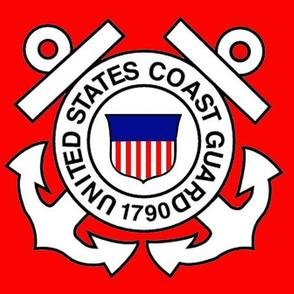 dio for this video. The man fell overboard from the vessel earlier in the day and was recovered from the ocean by the remaining crew after 25 minutes in the 37.6 degree water. U.S. Coast Guard video by Air Station Kodiak. video
dio for this video. The man fell overboard from the vessel earlier in the day and was recovered from the ocean by the remaining crew after 25 minutes in the 37.6 degree water. U.S. Coast Guard video by Air Station Kodiak. video
Green crabs, nitrogen identified as top threats to Maine’s softshell clams
 Where ocean acidification happens as a result of burning fossil fuels, causing carbon dioxide to go into the water, Payne said, coastal acidification happens because of nitrogen runoff from fertilizer, sewage, pesticide and other manmade pollutants. continue
Where ocean acidification happens as a result of burning fossil fuels, causing carbon dioxide to go into the water, Payne said, coastal acidification happens because of nitrogen runoff from fertilizer, sewage, pesticide and other manmade pollutants. continue
Focus on innovation and new markets make New Brunswick top seafood exporter in Canada
![]() FREDERICTON, N.B. – New Brunswick has grown to become Canada’s largest seafood exporter on the strength of its focus on new markets and innovation. continue
FREDERICTON, N.B. – New Brunswick has grown to become Canada’s largest seafood exporter on the strength of its focus on new markets and innovation. continue
Saving Seafood Analysis: Sylvia Earle Alliance Misleads Public on Habitat Closed Area Changes
WASHINGTON (Saving Seafood) March 18, 2013 – After nearly 20 years, there is little evidence that the habitat area closures off the New England coast benefit groundfish stocks. In addition, recent seabed mapping suggests that they are not even in locations best suited for habitat protection. Yet, the Sylvia Earle Alliance’s web-story, “New England Fisheries Face Serious Setbacks (2/27),” misleads readers with the argument that the New England Fishery Management Council’s (NEFMC) proposals to change the closures puts New England’s Georges Bank seabed “at risk of serious ecological setback,” when multiple studies prove otherwise. continue
American Samoa – Listing of local corals as endangered still a worry, Fisheries Council deals with lack of dock space, Albacore fishing reaching maximum levels
![]() Of the 66 coral species being proposed for listing, 46 occur in American Samoa. The listing is among issues being discussed by the Council this week. continue
Of the 66 coral species being proposed for listing, 46 occur in American Samoa. The listing is among issues being discussed by the Council this week. continue
Longline owners say they are without a home as they have to move around every time visiting boats arrive in port. Longline owner Carlos Sanchez also raised with the Council his concerns over what he called the “Chinese invasion” of Pacific fishery resources. continue
The overall catch is reaching maximum sustainable yield. continue
Alaska Sea Otter bounties likely not legal, but popular with some
A bill by Sen. Bert Stedman, R-Sitka, that would place a $100 bounty on sea otters harvested legally in Alaska attracted vocal support in a Senate Resources Committee hearing Wednesday, despite Stedman’s admission that the bill as drafted ![]() appears to be unenforceable under federal law. continue plenty of comments at the article!
appears to be unenforceable under federal law. continue plenty of comments at the article!
High prices expected for elver eel season
 PORTLAND — Last year’s eel fishing season started strongly when prices rocketed above $2,000 a pound. High prices are again expected when the 2013 season kicks off Friday. Prices won’t be set until the catch gets under way, but eel dealers say there’s little doubt that they’ll be high. continue
PORTLAND — Last year’s eel fishing season started strongly when prices rocketed above $2,000 a pound. High prices are again expected when the 2013 season kicks off Friday. Prices won’t be set until the catch gets under way, but eel dealers say there’s little doubt that they’ll be high. continue
Emails? Man! Do we get emails.
 A fella from New Jersey weighed in on the CONSERVATION LAW FOUNDATION: Saving Seafood is “rather discomposed” article. continue
A fella from New Jersey weighed in on the CONSERVATION LAW FOUNDATION: Saving Seafood is “rather discomposed” article. continue
“Menhaden are Overfished” Reports were Premature
![]() WASHINGTON (Saving Seafood) — 13 March 2013 — On February 20, the Atlantic States Marine Fisheries Commission (ASMFC) concluded that there is insufficient evidence to support claims that menhaden are overfished. The full ASMFC approved a report adapted from a January 2013 Menhaden Technical Committee teleconference which determined that based upon currently-available information, the status of the resource is unknown and will remain so until a new stock assessment is conducted. continue
WASHINGTON (Saving Seafood) — 13 March 2013 — On February 20, the Atlantic States Marine Fisheries Commission (ASMFC) concluded that there is insufficient evidence to support claims that menhaden are overfished. The full ASMFC approved a report adapted from a January 2013 Menhaden Technical Committee teleconference which determined that based upon currently-available information, the status of the resource is unknown and will remain so until a new stock assessment is conducted. continue
More prawns going to the personal use basket
![]() Having been granted a new policy mandate by a bigger chunk of the annual non-tribal share of the harvestable part of the spot shrimp population, beginning Saturday, May 4, recreational shrimpers also will get more time to gather their catches. Heretofore, the non-treaty prawn or spot shrimp allocation was further split roughly 50-50 between commercial harvesters and personal use gatherers. continue
Having been granted a new policy mandate by a bigger chunk of the annual non-tribal share of the harvestable part of the spot shrimp population, beginning Saturday, May 4, recreational shrimpers also will get more time to gather their catches. Heretofore, the non-treaty prawn or spot shrimp allocation was further split roughly 50-50 between commercial harvesters and personal use gatherers. continue
Board of Fisheries to tackle thorny Cook Inlet issues
 What to do when the Kenai River late-run king salmon may not meet escapement is up for discussion in Anchorage, in hopes that users and managers can find a solution before the start of the 2013 fishery. The Board of Fisheries will take up the Cook Inlet issue at its statewide finfish meeting March 19 to 24, with discussion on the late-run management plan scheduled to come up March 20. continue
What to do when the Kenai River late-run king salmon may not meet escapement is up for discussion in Anchorage, in hopes that users and managers can find a solution before the start of the 2013 fishery. The Board of Fisheries will take up the Cook Inlet issue at its statewide finfish meeting March 19 to 24, with discussion on the late-run management plan scheduled to come up March 20. continue
Poached Fish: Missouri Emerges as Caviar Smuggling Center
The idyllic small town of 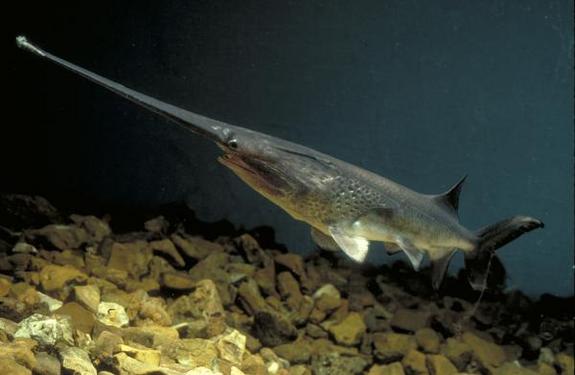
Kentucky commercial fishing competition nets 83,000 pounds of fish
 Kentucky Fish and Wildlife officials say the commercial fishing competition was the first ever to be aimed at Asian carp, which breed rapidly and have spread through the Mississippi River and its tributaries. The final two-day total of 82,953 pounds was short of a 200,000-pound goal, but state officials considered it a success on many fronts, said Kentucky Fish and Wildlife spokesman Mark Marraccini. continue
Kentucky Fish and Wildlife officials say the commercial fishing competition was the first ever to be aimed at Asian carp, which breed rapidly and have spread through the Mississippi River and its tributaries. The final two-day total of 82,953 pounds was short of a 200,000-pound goal, but state officials considered it a success on many fronts, said Kentucky Fish and Wildlife spokesman Mark Marraccini. continue

































